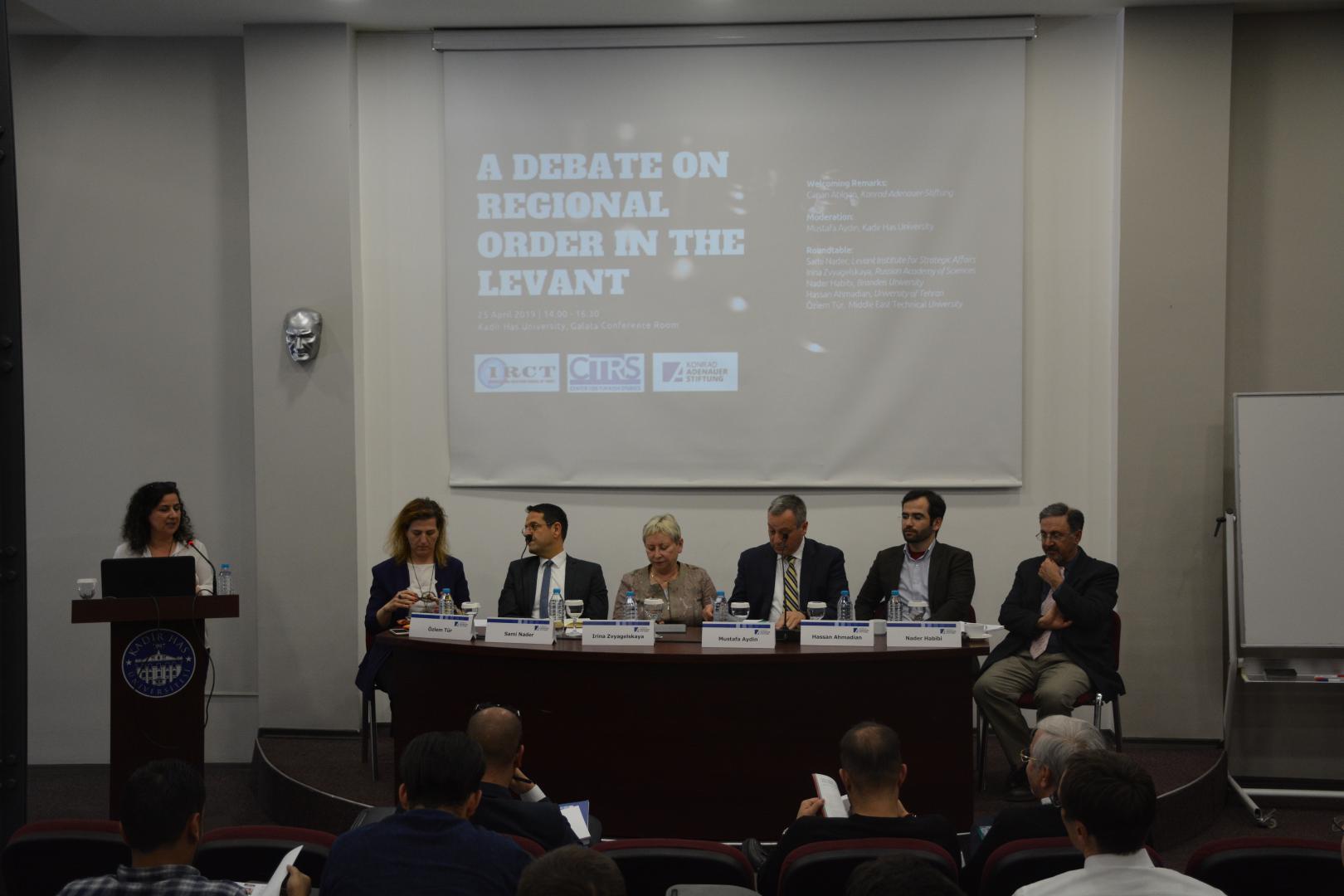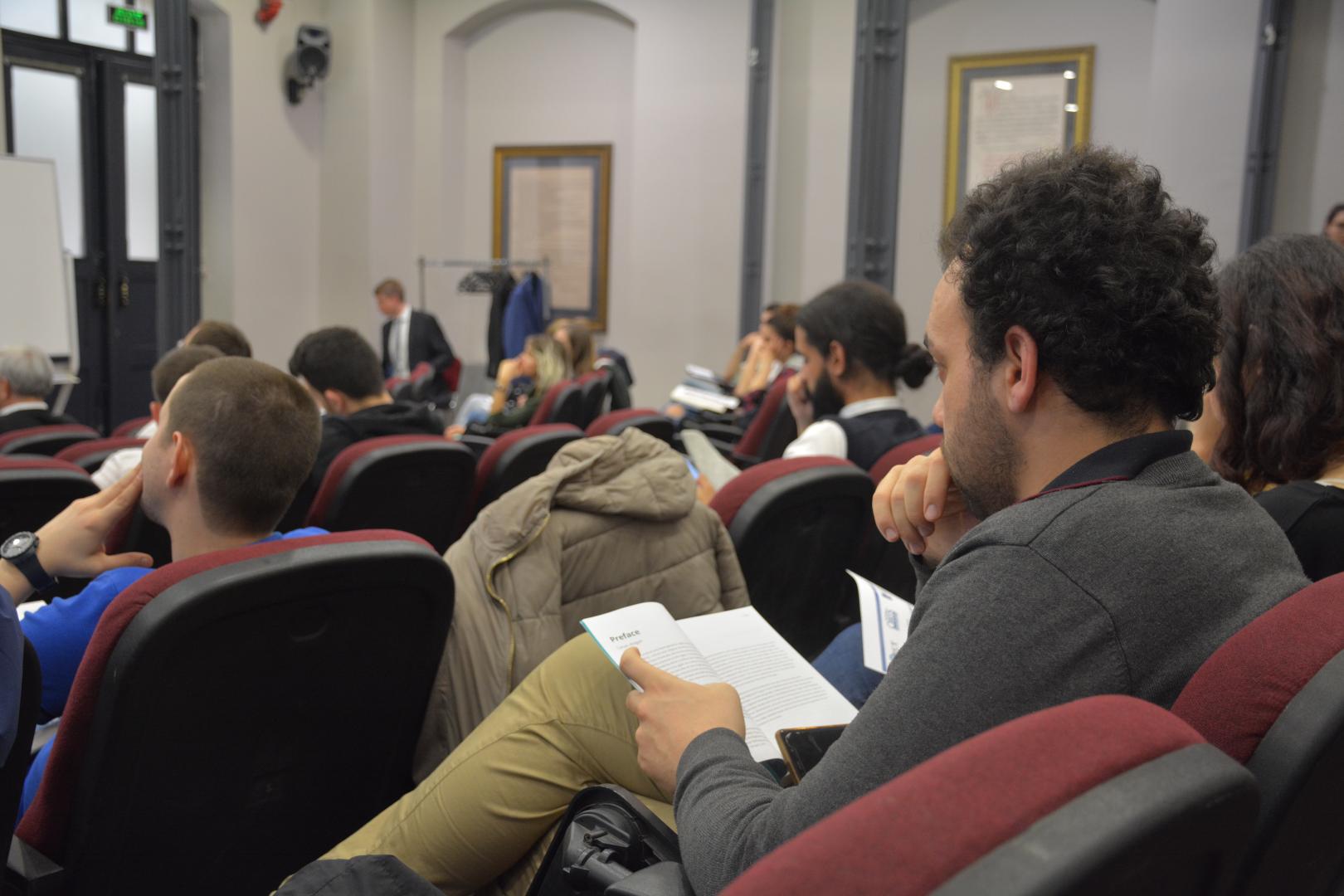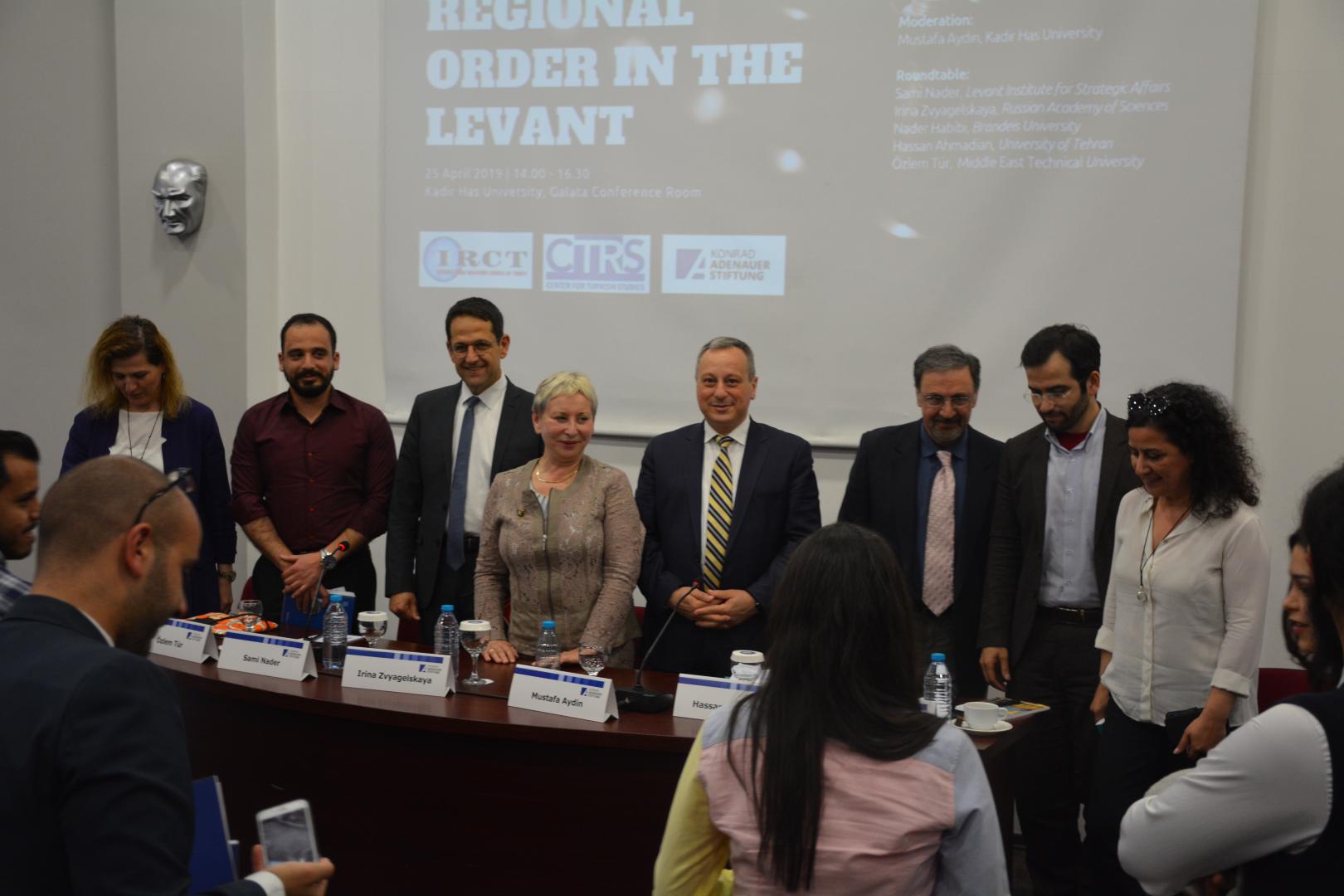The Levant – generally known as Eastern Mediterranean - has historically served as the stage for great power rivalry due to its geostrategic proximity to Europe, its vast natural resources and its greatly diverse religious disposition. Recent years have seen the strengthening and deepening of historical fault lines and the emergence of novel drivers for conflict that resulted in the collapse of the prevailing regional power sharing model. It is against this backdrop that the KAS Regional Program South Mediterranean issued in collaboration with the International Relations Council of Turkey a volume titled “The Levant: From Ancient Gateway to Modern Chaos - Search for a Regional Order”. The roundtable discussion at the Kadir Has University took the debate a step further and critically engaged with the struggle for a regional order in the current Levantine framework.
The Panel was moderated by Prof. Dr. Mustafa Aydin from the Kadir Has University, and consisted of contributions from Sami Nader from Lebanon; Dr. Irina Zvyagelskaya from Russia; Dr. Nader Habibi from the U.S.; Dr. Hassan Ahmadian from Iran; and Dr. Özlem Tür from the METU in Ankara.
Sami Nader started the panel discussion with pointing towards the American withdrawal that has allowed for a strengthened foothold for Russia and Iran in the Levant, using Iraq as an uncertain example that symbolically stands for the prevailing problems in the region: While the average growth of economy does not exceed one percent, population continues to grow at a disproportionately higher rate. The resulting socio-economic tensions will continue to shape the region.
Irina Zvyagelskaya added that there were never nation-states in the Middle East and instead the region relied on a system of checks and balances that has lost its balance in recent years. Hence, expectations for the Levant region are entirely unpredictable. Nevertheless, Sami Nader’s assumption that new technologies resemble opposition component is relevant in this regards, as through an opposition, a new checks and balances system may crystalize. The region, as Zvyagelskaya ascertained, is characterized by weak states and strong societies, whose core objective is to make up for a perceived lack of justice in regional affairs (War on Terror, Arab-Israeli conflict). This in turn, translates into the search for a new regional order, and the Islamic State arguably represented one form of such.
Nader Habibi, on the other hand, first challenged Sami Nader’s argument that the U.S. have withdrawn from regional affairs as they are still very involved in the Arab/Israeli conflict, the Syrian quagmire and the noticeable effect of U.S. sanctions on the countries of the Levant. Furthermore, Mr. Habibi argued that nation-states are not necessarily deceasing as evident with the Gulf countries that are still very powerful. The question on who determines a new regional order will center on the question ‘who can offer more economic incentives’ and in this regard, the fluidity of oil prices may be a core indicator.
Hassan Ahmadian highlighted that Iran’s vision is very strongly connected to the Levant region and it will likely play a key role for Iran’s regional and even international policies. Currently, due to a maximum pressure situation of U.S. sanctions as well as regime change tendencies, Iran is in a ‘negotiation mood’ as seen with the Astana process and the previous nuclear deal. After the failure of some negotiations, however, the Panel questioned whether Iran will go back to the negotiation table with a ‘loaded gun’ due to the survival mode of the regime in the past years. Nevertheless, Ahmadian ascertains that Iran’s regional policy is unlikely to change as being militarily self-reliant, such as its ballistic missiles, and having militia networks throughout the region, is the only way for Iran to pursue its regional goals and the foreign policy umbrella stands for the national regime survival.
Özlem Tür warned the panel that while fault lines are evident throughout the region, the ‘proxy’ aspect and the sectarian paradigm are often emphasized too exhaustively at the cost of geopolitical realities in the Levant. Furthermore, she cautioned that the demographics of the region are neglected and the linkage of youth unemployment and geopolitical issues needs more attention. After critical questions from the audience, Tür further argued that state leaders are obsessed with nepotism – staying in power instead of introducing reforms. Nonetheless, the panel agreed that the dynamism of the youth in accordance with increasingly high level of education of women, calling it a ‘game changer’, leaves room for hope, even though the capacity must strategically be incorporated in an existing structure that is to date rather weak and unstable. Therefore, the region requires thorough and far-reaching reforms and a new balance of power is the key for stability in the Levant region.








